Prime Minister Theresa May has said she will not lead the Conservative Party into the next general election.
She said the party would prefer to "to go into that election with another leader", as she arrived in Brussels for an EU summit.
It confirms what she told MPs ahead of a confidence vote triggered by MPs angry at her Brexit policy.
Mrs May won the vote but has vowed to listen to the concerns of the 37% of Tory MPs who voted against her.
The next scheduled general election is in 2022.
- Live updates: Fallout from May's confidence vote
- Kuenssberg: May goes public with end-date pledge
- Why isn't Labour trying to topple May now?
- Runners and riders: Who could replace Theresa May?
- May vote leaves Europe media unimpressed
Mrs May said: "I've said that in my heart I would love to be able to lead the Conservative Party into the next general election but I think it is right that the party feels that they would prefer to go into that election with another leader."
Asked whether she would quit after Brexit, she declined to discuss dates but added: "What I'm clear about is the next general election is in 2022 and I think it's right that another party leader take us into that general election."
The prime minister said she hoped to "assuage" the concerns of Tory MPs who voted against her by seeking legal "assurances" from EU leaders that the backstop plan to prevent the return of a hard border in Northern Ireland would be temporary.
Critics say Mrs May's backstop plan will keep the UK tied to EU rules indefinitely and curb its ability to strike trade deals.
The EU says it will not renegotiate the backstop, but may agree to give greater assurances on its temporary nature.
It seems unlikely that would win over enough support for her Brexit plan to have a realistic chance of getting through the House of Commons, with tensions heightened in the Conservative Party in the wake of Wednesday evening's confidence vote.
Downing Street confirmed on Thursday that the MPs' "meaningful vote" on the deal will not now take place before Christmas - it was abandoned this week when Mrs May admitted it would have been "rejected by a significant margin".
The PM's spokeswoman said it would happen "as soon as possible in January".

'She now has a limit on her time in office'

The prime minister's admission that she'll leave office before the next election fended off yesterday's clamour from a chunk of her party to go.
But it hardly makes things easier from today onwards.
Just as she is desperate to get a time limit on the controversial "backstop", she now has a limit on her time in office.
Now it is public, in her own words, questions won't just be about her impossible Brexit agreement but also about how, and when, she will finally go.

What will happen at the EU summit?
Earlier this week, the prime minister travelled to meet EU leaders, including German Chancellor Angela Merkel and Dutch Prime Minister Mark Rutte, to raise the issues surrounding the withdrawal agreement at Westminster one-on-one.
But a trip to meet the Irish Taoiseach Leo Varadkar had to be cancelled because of the leadership vote.
At Thursday's summit, Mrs May has the opportunity to spell out face-to-face the problems she faces to leaders of all the other 27 member states.
The EU leaders will then consider what could be done - without Mrs May in the room.
May's message as she arrived in Brussels
Theresa May said she had listened to the concerns of the MPs who had voted against her, adding that she knew what was needed to get her deal "over the line".
"I've already met [Irish Premier] Leo Varadkar, I'm going to be addressing the European Council later and I'll be showing the legal and political assurances that I believe we need to assuage the concerns that MPs have on this issue."
She added: "I don't expect an immediate breakthrough but what I do hope is that we can start work as quickly as possible on the assurances that are necessary."
What was the EU's response?
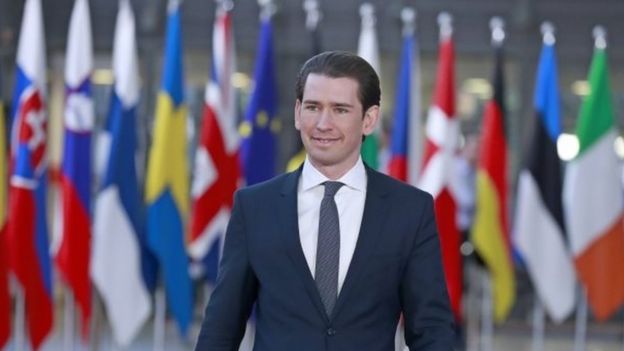 EPA
EPA
Austrian Chancellor Sebastian Kurz, whose country holds the rotating six-month presidency of the European Council, said: "I believe that Theresa May knows that there can be no reopening of the withdrawal agreement."
But he said that it might be possible to "provide a little better explanation or definition or go into detail" on the provisions of the agreement.
"Hopefully that will allow Theresa May to bring a vote in January and obtain a majority," he said.
"If the British prime minister thinks one or another additional explanation can be helpful before she brings it to a vote, then we should do that."
Asked what concessions might succeed in winning over Mrs May's domestic critics, Mr Kurz said: "It is difficult to judge, because many of the sceptics do not argue in a way that is really rational."
What is being said in Westminster?
Tory MP Iain Duncan Smith, a former party leader and a Brexiteer who voted against Mrs May in Wednesday's vote, said he wanted to "send a strong message" to the PM.
He told BBC Radio 4's Today programme: "We cannot go on just with the idea that a fiddle here and a fiddle there is what the problem is."
Instead, he said Mrs May should say that the £39bn the UK has agreed to pay the EU as part of the divorce deal is "at risk".
"They have got to say to the EU... we are not committed to this £39bn unless we get some resolution."
- How long can Theresa May survive as PM?
- What does Ireland do if there’s no deal?
- How did we get here?
- Listen: Emergency Brexitcast podcast on May vote
- For or against? How Tory MPs said they would vote
Lib Dem leader Sir Vince Cable, who is against Brexit, told BBC Breakfast: "We are still back with the problem that the government has a proposal that we can't get through Parliament and we have got to try and break that gridlock."
He called on Labour leader Jeremy Corbyn to "come off the fence" and back another public vote on Brexit.
Labour has said that it will table a no-confidence motion in Theresa May's government that all MPs - not just Conservatives - will be able to vote in - but only when they felt they had a chance of winning it, and forcing a general election.
But the DUP - which props up Mrs May's government - said it would not support such a motion at this stage.
Shadow Chancellor John McDonnell urged Theresa May to work with Labour on getting a deal with the EU that "will protect jobs and the economy".
He said there was an "overwhelming majority" in the Commons against a no-deal Brexit but the prime minister should now hold a series of votes to establish what other options MPs were willing to accept.
What happened at the confidence vote?
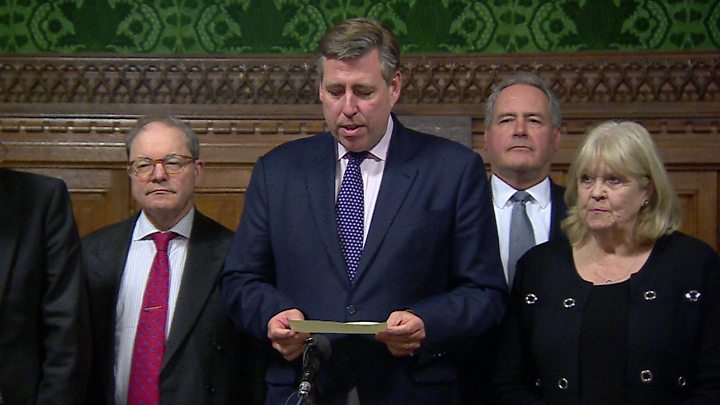
The prime minister won the confidence vote with a majority of 83 - 63% of Conservative MPs backing her and 37% voting against her.
A split was still clear in the Tory party after the result. Jacob Rees-Mogg, who led calls for the confidence vote, said losing the support of a third of her MPs was a "terrible result for the prime minister" and he urged her to resign.
But Nicholas Soames urged Brexiteers to "throw their weight" behind the PM as she sought to address the "grave concerns" many MPs had about aspects of the EU deal.
DUP deputy leader Nigel Dodds said his party was also still concerned about the Irish backstop plan, telling BBC News: "I don't think this vote really changes anything very much in terms of the arithmetic."
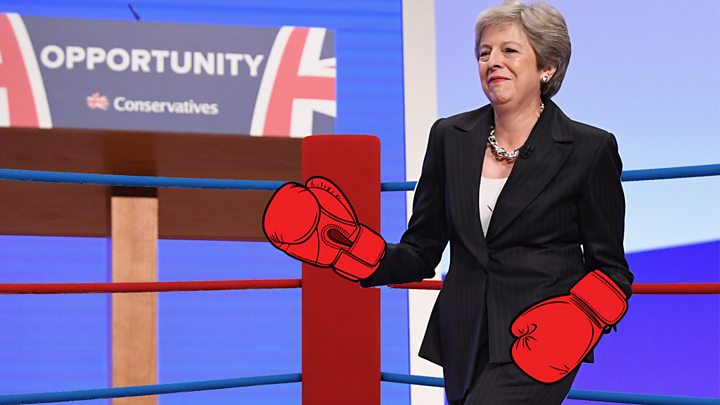

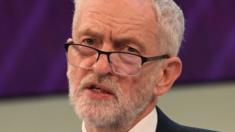
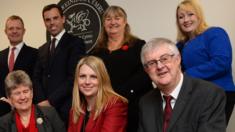
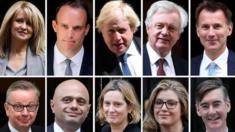
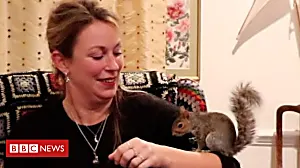
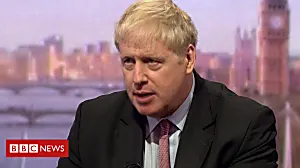
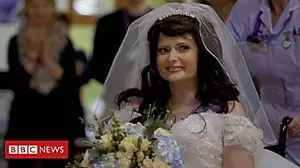
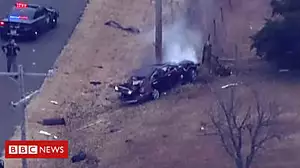

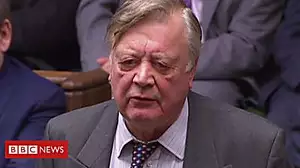

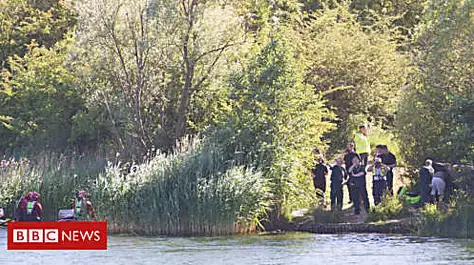
No comments:
Post a Comment